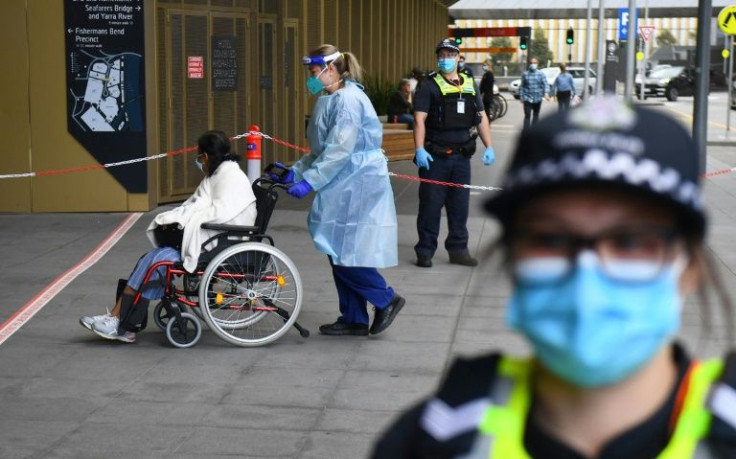Has Omicron Peaked? Here's Why Experts Are Optimistic

The vehement spread of the Omicron COVID variant has left health officials and governments scrambling for methods of containment. As increasing evidence shows that the new variant does not cause severe symptoms, however, officials remain confident that the rampant Omicron wave could be shorter compared to the variants that came before it.
Last week, the director of the National Institute of Allergy and Infectious Diseases, Dr. Anthony Fauci, predicted that the Omicron wave of the coronavirus would plateau by the end of January “given the size of our country and the diversity of vaccination versus not vaccination."
“It certainly peaked pretty quickly in South Africa...It went up almost vertically and turned around very quickly,” Fauci said.
CNBC further reports that South Africa’s government issued a statement on Dec. 30 declaring that “all indicators suggest the country may have passed the peak of the fourth wave at a national level,” reporting major decreases in reported cases.
In the United Kingdom, evidence suggests London may be past the worst of the highly transmissible Omicron variant, beginning to move beyond a peak that was lower than some models predicted and has remained manageable for hospitals, The Washington Post reports.
“For the moment, we can probably say London appears to be over the worst,” the chief executive of NHS Providers Chris Hopson said Tuesday.
Contrarily, Chicago's Department of Public Health Commissioner Dr. Allison Arwady says that "we don't know when Omicron is going to peak," NBC Chicago reports.
Arwady said that the best measure of COVID-19’s trajectory in Chicago comes from observing what takes place in Europe, the U.K., and New York City.





















